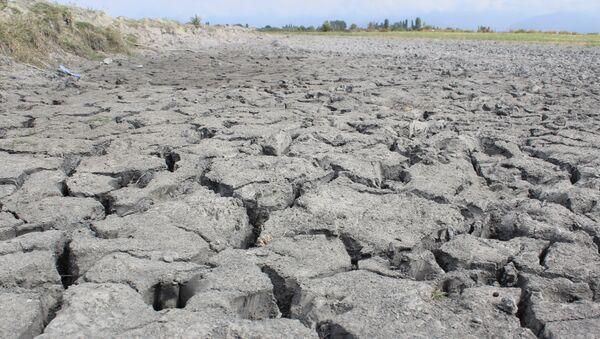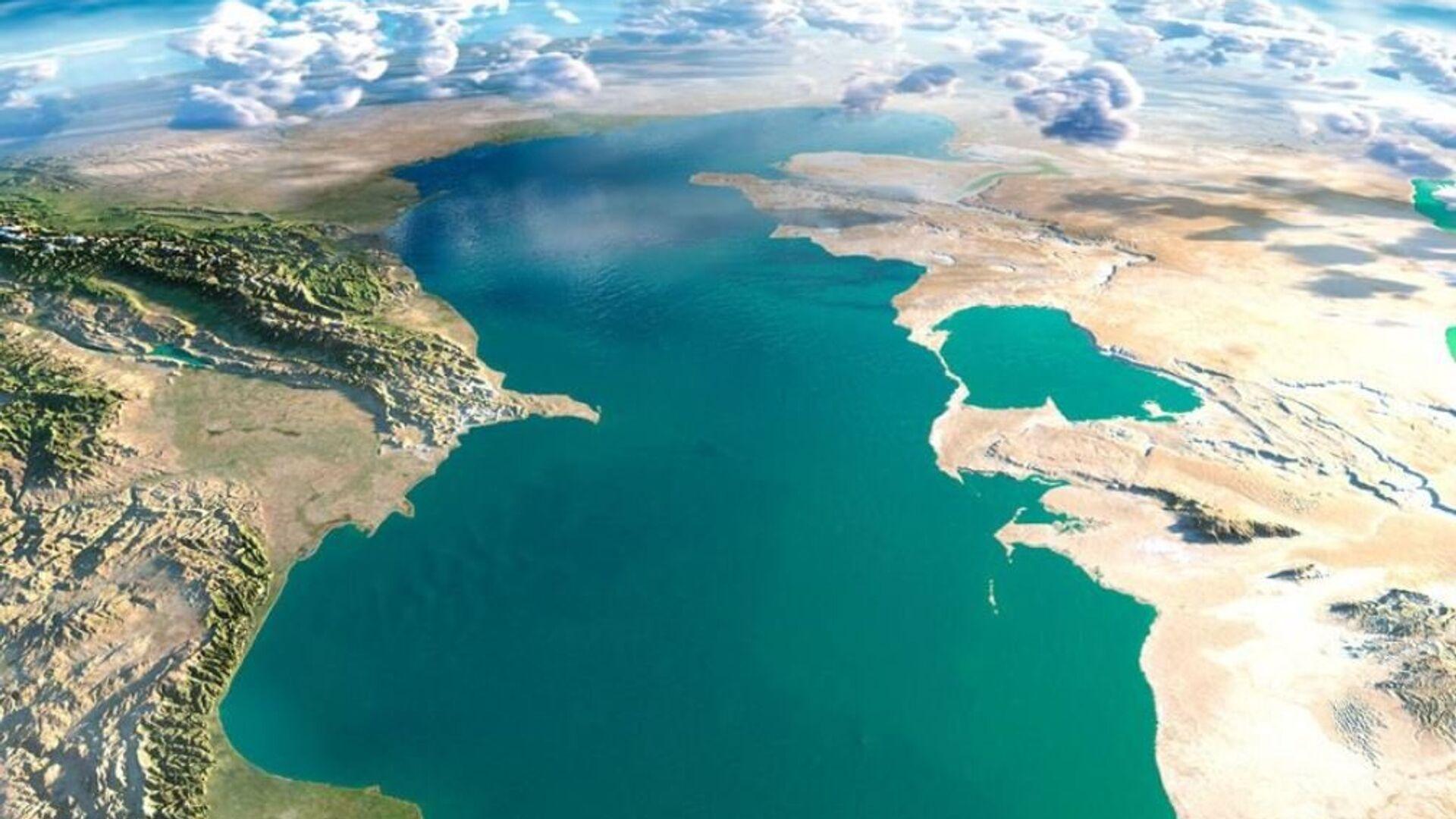Baku harnessing technology to tackle water crisis Efficient solutions & green agenda
Environmental experts estimate that accelerating desertification could reduce Azerbaijan's freshwater reserves by 15-20 per cent by 2050. Several alternative projects to supply the capital with water are currently being studied by the government. Not long ago, an agreement was signed with an Israeli company to provide technical assistance for the creation of a desalination plant on the Caspian Sea, low-cost irrigation technologies are being introduced, opportunities for rainwater harvesting are being studied, etc.
Projects for the treatment and re-use of wastewater look very promising: On December 25, the President of Azerbaijan, Ilham Aliyev, ordered the implementation of a pilot project in this field in the Absheron region of the country.
Azerbaijan has declared 2024 "The Year of Solidarity for a Green World", and the head of state signed the decree. As the preamble of the document states, our country is a reliable and responsible member of the international community and a contributor to the fight against the effects of climate change. The decision to host COP 29 in Azerbaijan is an example of the great respect and trust that the international community has for Azerbaijan and recognition of its contribution to the protection of the environment.
In this context, it is not surprising that one of the five national priorities of Azerbaijan's socio-economic development until 2030 is defined as a "clean environment and green growth country". These include developing renewable energy, decarbonising industries, reducing greenhouse gas emissions by 35 per cent by 2030 and up to 40 per cent by 2050, introducing smart and green technologies into urban communities, and ensuring that water resources are used efficiently.
The highest long-term planetary priority is now recognised as being the prudent and sustainable use of freshwater. According to a recent UNESCO report, only 3-4 per cent of the world's water resources are currently usable as freshwater sources, and those reserves are diminishing, leaving 2 billion people, or about 26 per cent of the world's population, without access to drinking water.

Azerbaijan, where water resources have declined by more than 15 per cent in the last 20 years, also faces these problems. According to the UN Food and Agriculture Organisation (FAO), Azerbaijan is one of the 20 countries in the world that suffer most from water scarcity.
At the same time, about 70 per cent of the country's freshwater is used in agriculture, where huge losses are observed in worn-out main water canals and earthen ditches. To solve this problem, the country is planning to introduce electronic systems to control the use of water resources. It is also implementing projects to seal irrigation canals by concreting and covering them with polymer materials. On the other hand, the country is actively introducing beer, aerosol, fine spray and other economical irrigation systems, mainly in agro-parks. From 2023, these projects will massively cover farms.
However, agriculture is not the only area where environmental and technological innovations are being applied to reduce water losses and use alternative sources of fresh water. There are plans to introduce water recycling systems in Baku and other major cities of the republic. In recent years, the Ministry of Ecology and Natural Resources, as well as the structures of the State Water Resources Agency of Azerbaijan - JSC "Melioration and Water Management" and JSC "Azersu" - have been developing projects for the optimisation of water resources management and the introduction of innovations in this field.
The alternative use of rainwater is being studied alongside the construction of new reservoirs, water pipelines and the use of water resources in the Garabagh region. In particular, specialists from the Ministry of Ecology are studying the prospects of using rainwater, and technical and organisational proposals have been included in the Baku General Plan programme. Such a system involves collecting water from building roofs or street drains and storing it in reservoirs. In summer, rainwater can be used for watering trees and other purposes, significantly reducing the need for clean fresh water.
Azerbaijan is considering another option to solve the water crisis. This is the construction of desalination plants on the Caspian Sea coast. A similar project in this area was implemented on the initiative of the Ministry of Ecology with the participation of Israeli companies: a desalination plant with a capacity of 1,000 m3/h was built 80 km south of Baku near the village of Khidirli at the intersection of the Garadagh and Salyan districts.
The State Oil Company (SOCAR) has built desalination plants of much smaller capacity on the islands of Chilov and Gum Adasi, as well as a similar plant for producing technical fresh water, which is operated at the Shimal-2 thermal power station. The tasks for the creation of the country's first large desalination plant were formulated in the April order of the Head of State, and already in September this year the water operators of Azerbaijan and Israel, JSC "Azersu" and Mekorot Water Company, signed a contract on providing technical advice on the project for the construction of an industrial desalination plant near the capital.
The day before, another major water conservation project was launched. The head of state ordered the implementation of a pilot project in the Absheron region of the country for the treatment and reuse of wastewater discharged into the Caspian Sea from the Hovsan aeration plant.
According to the document, the implementation of the pilot project is aimed at the expansion of the use of alternative water sources, the reduction of the loss of drinking water, the treatment and reuse of wastewater, as well as the introduction of new technologies in this field. In this regard, the Cabinet of Ministers has been instructed to ensure that the necessary measures are taken to implement the pilot project, taking into account the best international practices.
Mankind has been a part of the natural water cycle for a long time and through the discharge of treated wastewater into rivers and water bodies, it replenishes the loss of water due to its withdrawal in other places, as a result of which the total amount of water in water bodies is in balance. Wastewater flowing through water bodies, rivers or groundwater sources is reclaimed and returned to raw water suitable for drinking.
However, there are many ways to directly use wastewater as a full-fledged raw material to meet the needs of municipal utilities, industrial facilities, agriculture, etc. In India, Singapore, Mexico, Spain and Israel, recycled water is a precious source of water for key industries: power stations, refineries, factories and tanneries, automotive industry. A similar system has been in place in Windhoek, the capital of Namibia, since 1965, and in London, a significant proportion of drinking water is recycled indirectly through the River Thames, the capital's main water source.
It should be noted that Azerbaijan is also taking steps to use treated wastewater. For example, thanks to the efforts of Azərlandşaft OJSC, which operates under the Ministry of Ecology, more than 80 per cent of treated industrial water is now used to irrigate green areas in Baku and its suburbs, whereas a few years ago significant amounts of very scarce tap water were used for this purpose.

Unfortunately, only a small proportion of the wastewater treated in the aeration systems of Hovsan and other treatment plants is reused; most is simply discharged into the Caspian Sea, not to mention the fact that some Baku suburbs often have no sewage collection and disposal system. Thus, if the pilot project on wastewater treatment and reuse is implemented in the Absheron district, as well as in the rest of the world, treated industrial water can be used in all suitable areas - construction, industry, car washes, cleaning of territories and irrigation of green areas, and of course in the field of irrigation, etc. The World Bank is ready to provide technical assistance in this area.
The World Bank has extensive experience in financing water treatment and reuse projects in a number of countries around the world. The technologies in this area have long been developed and are quite accessible. There is a need to collect wastewater through the centralised sewerage system and create a closed mechanism for its treatment and re-use.
These measures would kill two birds with one stone: prevention of environmental pollution, protection of the ecology of the Caspian Sea and numerous Absheron lakes, and at the same time, through the use of technical water, a significant reduction in the consumption of scarce clean tap water.








